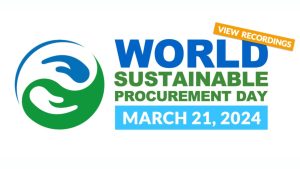 By Stephen Bauld
By Stephen Bauld
During these difficult times of the COVID-19 pandemic, it is critical to order specific items that are in high demand. This type of situation will often cause a sole-source purchase that needs to be negotiated directly with the different suppliers that have the required products.
To ensure that you are not led down a garden path by suppliers that will mostly likely have ‘the power’, we must rely on the basic principles of procurement, such as engaging in price negotiation and contract monitoring.
Where a negotiation approach is adopted, the contract should be concluded following a closed process of direct negotiation with one or more of the critical suppliers that can supply the scarce products required on a rush basis.
At least some effort should be made to drive down the price, or at least to attempt to get a more favourable price even under these extreme pandemic circumstances. In the current situation, a government agency may decide to follow a negotiation procedure in one of the following situations:
– Where the procurement is related to professional services or, in this case, scientific research, and where suppliers have unique fields of expertise.
– An open process might in itself create a risk of damage on a large scale, or during the pandemic when people’s health and safety are at risk.
– The supply of goods and services that involves emergency purchases of a critical nature to control the spread or contain this type of virus.
For government, verification for these types of purchases is important. While it is one thing to set a policy, it is quite another to be flexible during extraordinary events in history, such as the difficult times that we are going through now. In order to ensure that unjustified recourse is not made during the sole sourcing of materials during a pandemic, it is still necessary to monitor the issue of such contracts carefully. At the very least, managers who issue emergency contracts of this type should ensure that they do have a formal transactions record.
In emergency cases like we are presently in, sole sourcing is often the last resort to acquire the goods and services needed to protect the population from additional COVID-19 cases. We do not need to infect any more people through a lack of protective masks and other safety equipment.
One of the most obvious aspects of the various laws and policies governing municipalities, and any other government agencies in general, is the need to impose some form of regularity and to establish order over the procurement process. This effort is frustrated where the government is thrust into an emergency, such as the COVID-19 virus.
One of the other issues is the decision as to what constitutes an ’emergency’ during a pandemic, as this is often somewhat subjective. After this virus passes, it is quite possible that in the circumstances of any given case, what subsequently does not seem all that important, certainly did at the time when a purchase was made.
The other issue that we must all deal with during a pandemic is price gouging. A face mask that could have been bought last year for 87 cents is now worth $20. This stems from the supply and demand concept. It is unfortunate that some companies take the opportunity of a pandemic to profit from other people’s suffering; profit over principle is never a good idea.
As we all stay at home during this historical point in time, we can reflect on the strength of a united country. As a purchasing professional, it is critical to keep safety supplies coming to doctors and nurses on the front line that are working to save lives. Supply chain has never been as critical as it is during a disaster.
We all need to do our part as contractors, governments and purchasing professionals to help get past this horrific situation. We can all do our part to ensure that we are looking towards helping in any way possible during these difficult times.
Stephen Bauld is a government procurement expert and can be reached at swbauld@purchasingci.com. Some of his columns may contain excerpts from The Municipal Procurement Handbook published by Butterworths.


























